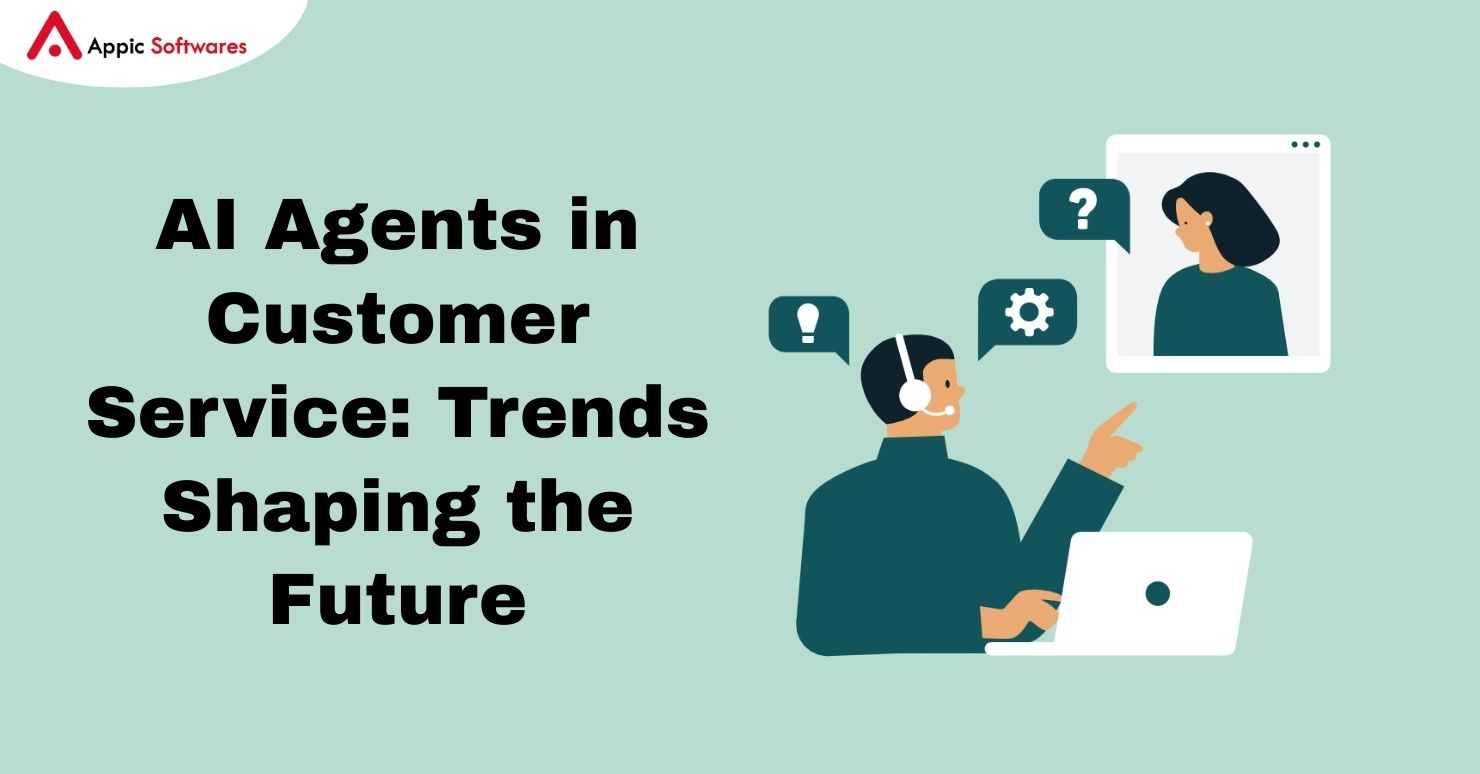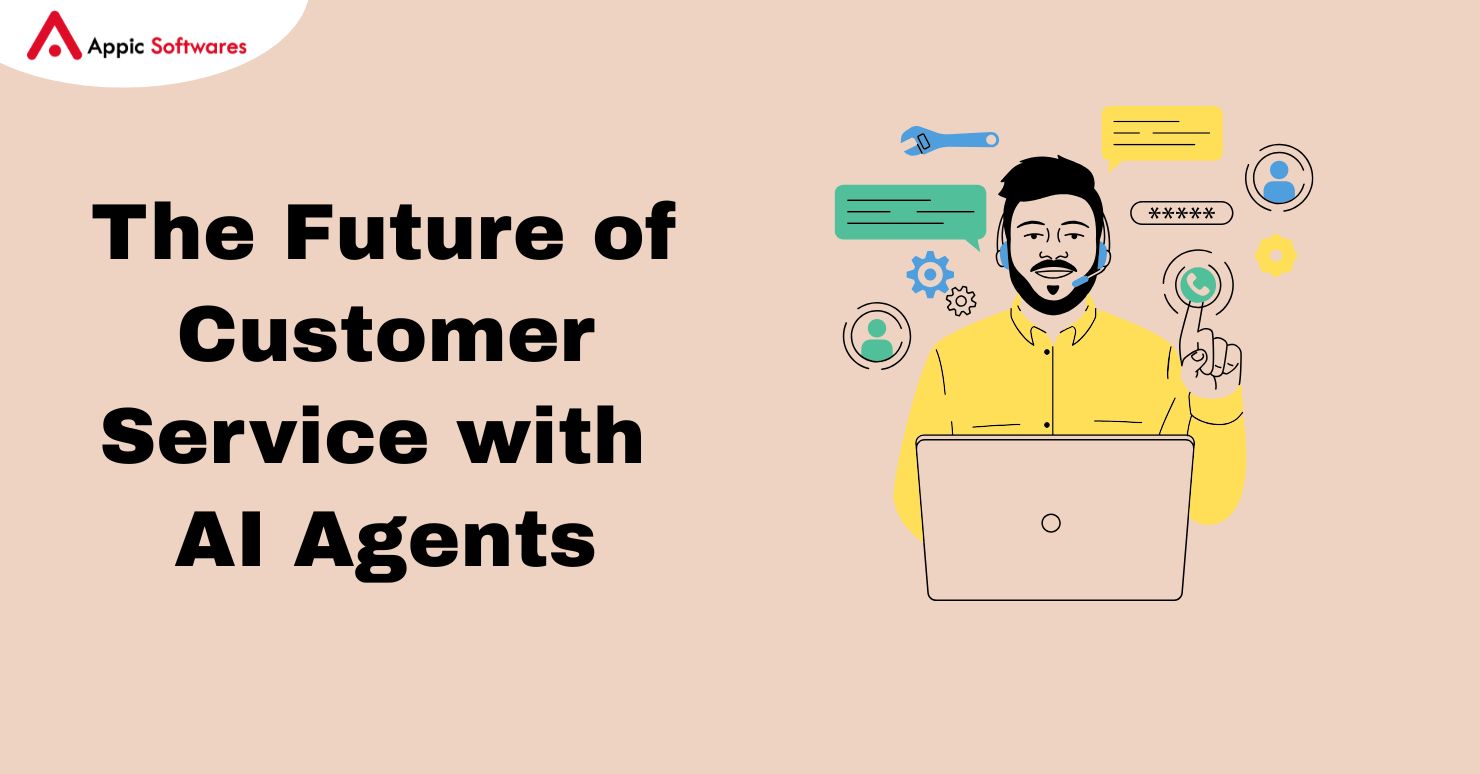
Customer service has always been at the center of business growth. In recent years, technology has redefined how companies engage with their customers. Artificial intelligence and intelligent agents are at the core of this change. These ai agents in customer service are transforming how problems are solved, how fast responses are delivered, and how personalized interactions become. The future of customer support is closely tied to the growth of these agents, and businesses that adapt early will stay ahead.
The Rise of AI Agents in Customer Service
The earliest tools in customer service were simple rule-based bots. They could only respond to limited, pre-written questions. Over time, these evolved into knowledge based agent systems. A knowledge based agent uses stored data to deliver accurate and context-driven responses. Today, companies are moving toward goal based AI agents and reflex agent in AI systems. A rational agent in AI makes choices that benefit both the company and the customer.
Learning AI agents go even further. They don’t just offer planned answers; they learn from each engagement. They know what you mean, the situation, and the tone. Hierarchical AI agents help businesses work through difficult problems one step at a time. The path highlights how customer service has gotten smarter, from a simple reflex agent in AI to multi-agent systems.
Why AI Agents Are Reshaping Customer Support
Modern customers want quick and accurate responses. AI agents for customer support deliver instant replies without long waiting times. They operate 24/7, ensuring that businesses are always available. This constant availability builds trust and satisfaction.
Personalization is another major benefit. AI agents in customer service analyze past interactions to suggest tailored solutions. For ecommerce, ecommerce AI agents make shopping experiences more personal. They recommend products, guide purchases, and improve loyalty. These personalized touches boost sales and strengthen customer relationships.
Types of AI Agents Used Today

There are many forms of AI agents. A simple reflex agent in AI handles routine, repetitive tasks. Goal based AI agents focus on solving specific customer objectives. Rational agents aim to maximize positive results for everyone involved. Multi agent systems examples include entire customer support teams powered by AI. Businesses often weigh single agent vs multi agent approaches. While single agents work well for small tasks, multi agent optimization provides better scalability and collaboration.
Python multi agent development is very common. Companies prefer python for AI development because of its strong libraries and community. Many AI development framework tools are also built on Python. These frameworks help create better agents for customer service and other fields.
Single Agent vs Multi Agent Systems
Businesses often face the choice between single agent vs multi agent systems. A single agent is simpler and cheaper, suitable for small setups. However, types of multi agent systems are better for large-scale customer service. Multi agent systems examples include automated call distribution, complaint handling, and knowledge management. Multi agent optimization ensures agents work together smoothly. Though the cost to develop multi agents is higher, the long-term returns are much greater.
Trends Defining the Future of AI Agents
Integration is one of the biggest trends. Artificial intelligence in mobile apps now powers customer service inside applications. Customers can interact with AI agents directly without moving to other platforms. Cloud AI services are also growing fast. They allow companies to scale AI solutions easily, without building expensive systems.
Domain-specific agents are becoming popular. A virtual travel booking agent AI can book tickets, suggest hotels, and manage itineraries. In ecommerce, custom Shopify app development and PWA ecommerce development now integrate AI for smoother experiences. These approaches lower ecommerce app development cost and bring long-term efficiency. Companies now focus on ecommerce app development approach that blends automation with personalization to grow ecommerce business.
Retailers are adopting AI agents in retail for product recommendations and after-sales support. AI agents in logistics keep customers informed about shipments and delays. In factories, AI agents for manufacturing manage product inquiries and warranties. Even legal AI agents are now assisting with compliance and documentation queries.
Expanding Role of AI Agents Beyond Customer Service
AI agents are spreading across industries. AI agents in HR are helping with employee questions, onboarding, and recruitment. An AI agent for sales guides customers, suggests add-ons, and improves conversions. Ecommerce companies are already using the best AI for ecommerce to enhance shopping journeys.
In B2B, artificial agency solutions are supporting complex order queries. B2B ecommerce development now includes AI-powered systems that improve client relationships. This wider adoption shows that AI agents are not limited to customer service alone.
The Future of Customer Service with AI Agents
The future belongs to advanced automation. Learning AI agents will move from reactive responses to predictive service. They will anticipate customer needs before they are even asked. Hierarchical AI agents will solve complex cases step by step. Reflex agent in AI systems will answer quick questions, while rational agent in AI systems will help with strategic support.
Ecommerce AI agents will evolve to deliver more personalized experiences. Companies will continue using custom Shopify app development, PWA ecommerce development, and other ecommerce app development approach models that integrate AI. This will reduce ecommerce app development cost and help grow ecommerce business efficiently.
Cloud AI services will make AI accessible to all. Small companies will adopt powerful systems without needing large infrastructure. Artificial intelligence developers will keep building new AI development framework tools to expand possibilities. AI agents for customer support, sales, logistics, and HR will become industry standards.
Conclusion
AI agents in customer service are not just a trend. They are the future. Artificial intelligence agency systems deliver instant, accurate, and personalized help. Businesses can choose single agent vs multi agent solutions based on size and goals. Though the cost to develop multi agents may be high, the benefits are undeniable.
From ecommerce to logistics, from HR to manufacturing, AI agents are everywhere. Whether it is a virtual travel booking agent AI, AI agents in HR, or ecommerce AI agents, their role will continue to grow. Artificial intelligence in mobile apps, cloud AI services, and AI agents for data analysis are shaping a new world of customer interaction.
These agents are not just tools but partners. They enhance customer journeys and improve business outcomes. As ai vs ai agents keeps evolving, those who adopt early will lead. The future of customer service is powered by artificial agency, and it is already changing how we experience support.
FAQs
1. What do AI agents do in customer service?
AI agents in customer service are smart programs that talk to customers, answer their questions, and help them find solutions. They employ AI to figure out what someone wants, what the situation is, and what data they have, which lets them give faster and more targeted help.
2. What makes AI agents different from regular chatbots?
Scripts that have already been written are what traditional chatbots use. AI agents, on the other hand, learn from their experiences, change their behavior dependent on the scenario, and employ knowledge-based systems to offer correct replies.
3. Is it possible for AI agents to take the role of human support teams?
AI agents can’t completely take the place of people. They do a good job with easy, repetitive chores, but they still need help from people for emotional, sensitive, or complicated problems.


